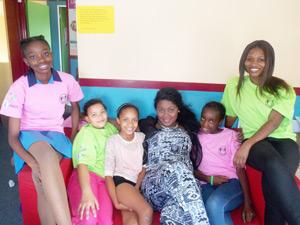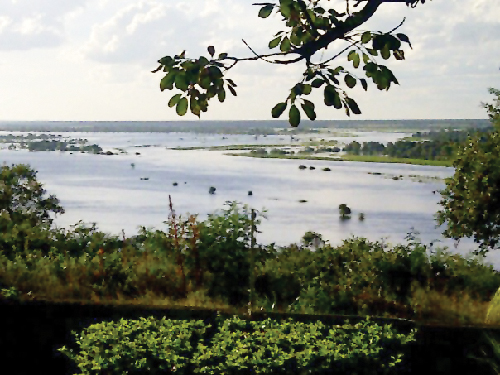
Lifeline/Childline helping the community to help themselves

(L-R) Lavinia Titus, Kayleigh Bock, Stephanie Van Wyk, Mathilda Riruako, Punaete Kangootui and Dinah Kawedi are all responsible for the running of Childline/Lifeline radio Uitani, which means “We will live”.
The organisation currently has eight counsellors with the other assistance being volunteers and interns from the University of Namibia’s social work and psychology students.
National Director Lifeline/Chidline, Jane Shityuwete said that even though their may task is to counsel, they also have programmes in place at grassroots levels that encourage behaviour change.
Said Shityuwete, “We work with the communities to raise awareness of ours services and help. We also have parenting courses were we give parents tools on how to communicate with their children, how to give quality time to their children and how to positively engage with their children.”
Shityuwete said that they are planning on a Gender Based Violence (GBV) helpline, to help with the prevention of GBV, both for the victim and the perpetrator or even victim to be or perpetrator to be.
“This line will be for people who think they might become a perpetrator or victim of GBV and for the ones who are already in this situation,” she added
“We are currently getting our funds from the US government and UNICEF for this project, but we still need more funds from the Namibian government and private sectors,” she said.
“We also have a programme called Safe Schools and Safe Communities, were communities and schools identify their own issues that they are struggling with and come up with their own solutions to these issue. Communities must own their problems and find solutions for them,” Shityuwete said.
She added that they also have sexual risk reduction planning programmes which are set to teach and help girls and young women understand what sexual risks they are taking, then they can protect themselves from HIV/AIDS.
“The hallmark of our work is that all our programmes are integrated. We do not do them in isolation, if a teen mother comes to use for counselling, we counsel her as a parent, on sexual risk reduction and self esteem, it is all integrated,” she added.
“We also have a radio program called Uitani, meaning ‘We Will Live’. This programme is fully child participatory, it is lead by the children, whatever topic they wish to discuss in their schools and communities, this is the platform for them,” said Shityuwete. “They can take their recorders home and can record what they want to and ten we edit it in our studio and send it different radio stations,” she added.
“Everybody needs support, and there is no stigma in that, we all struggle and I urge you to contact us on our free phone and sms line 116, no problem is to small for us we will take you seriously,” she encouraged.
Lifeline/Childline has got offices in the Hardap, Oshana, Ohangwena and Khomas Regions and they will also assist in referrals to connect with the Ministry Gender Equality and Child Welfare and Social Workers for further assistance.









































